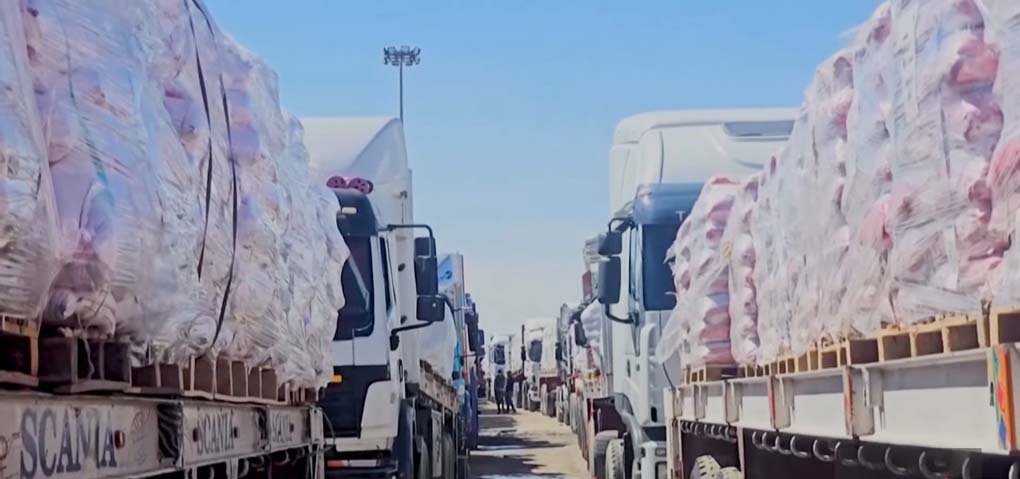Introduction
Israel revealed this week that it would stop all humanitarian aid supplies to Gaza and unveiled a divisive plan to end the seven-month conflict with Hamas, in a decision that has attracted both criticism and wary hope. Framed by Israeli officials as a “necessary measure to pressure Hamas,” the decision has exacerbated Gaza’s humanitarian situation with aid organizations alerting of disastrous shortages of food, medication, and gasoline. Concurrent with this, the suggested peace proposal—based on phased governance and demilitarization—has generated intense discussion on its viability and moral consequences.
Using news from Reuters, Al Jazeera, and UN agencies, this essay examines the most recent events and weaves in perspectives from Gaza people, diplomats, and analysts. Here’s what you need to know from the political underwriting of the aid cut to the human cost to families.
The Aid Freeze: Immediate Fallout and Humanitarian Crisis
Israel’s decision to block aid shipments through the Kerem Shalom and Rafah crossings marks a sharp escalation in its strategy to isolate Hamas. According to a June 2024 UN Office for the Coordination of Humanitarian Affairs (OCHA) report, Gaza now receives fewer than 100 aid trucks daily, down from a pre-war average of 500. Over 500,000 people face “catastrophic” food insecurity, with 1.1 million at emergency levels. Hospitals, already crippled by months of bombardment, are rationing generator fuel. The European Hospital in Khan Younis, for example, has reduced surgeries by 70% due to shortages of anesthesia and sterile equipment, The New York Times reported.
“We’ve eaten nothing but boiled wheat today,” said Amal Hassan, a mother of four in Khan Younis, in an interview with BBC. “My youngest son cries all night from hunger. Where is the world?”
Israeli Prime Minister Benjamin Netanyahu defended the aid suspension during a June 5 press conference, stating, “Hamas steals aid to fuel its war machine. We cannot allow that.” Reuters notes, however, that the UN has repeatedly disputed claims of systematic aid diversion, citing stringent monitoring protocols. A June 3 investigation by The Washington Post found “no conclusive evidence” of Hamas seizing recent aid convoys.
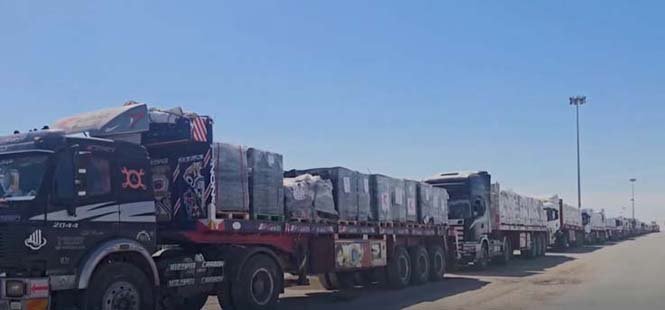
The Proposed Framework: Demilitarization, Security Zones, and a Post-Hamas Gaza
Israel’s new peace proposal, detailed in a 12-page document obtained by Haaretz, outlines a three-phase approach:
- A 10-Day Ceasefire: Conditional on Hamas releasing all remaining hostages.
- Demilitarization: A complete handover of Hamas weapons under international supervision, likely led by a coalition including the U.S. and Egypt.
- Interim Governance: A multinational task force (including Arab states like Saudi Arabia and the UAE) to oversee Gaza’s reconstruction and eventual elections within two years.
Critically, the plan demands that Hamas leaders relinquish power and exile themselves—a nonstarter for the group, which has vowed to “fight until victory.” The Times of Israel reports that Netanyahu’s cabinet is divided, with far-right ministers like National Security Minister Itamar Ben-Gvir opposing any deal that doesn’t include Hamas’s total annihilation.
Global Reactions: Support, Skepticism, and Outrage
The U.S. has cautiously endorsed the framework, with Secretary of State Antony Blinken calling it “a serious starting point” during a June 6 press briefing. However, EU foreign policy chief Josep Borrell labeled the aid cutoff “collective punishment,” while Saudi Arabia warned it could “destabilize the region further,” Al Jazeera reported.
Egypt and Qatar—key mediators—have privately dismissed the plan as “unworkable,” according to diplomatic sources cited by Axios. “Netanyahu is playing politics, not peacemaking,” said a Cairo-based diplomat. Meanwhile, Turkey’s President Recep Tayyip Erdoğan condemned the aid suspension as “a crime against humanity” during a speech in Istanbul.
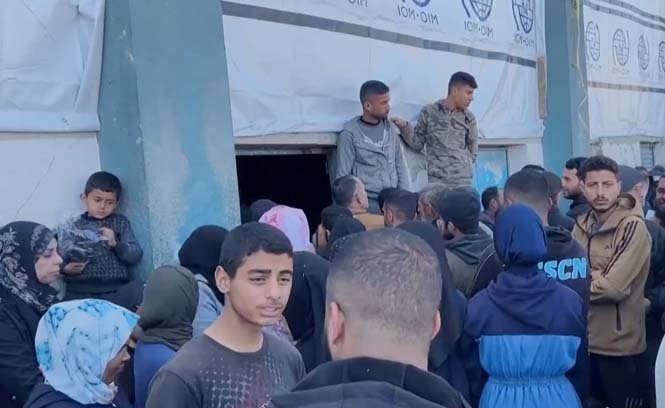
The Human Toll: Voices from Gaza
In Gaza’s Deir al-Balah, Dr. Yasmin Al-Kurd works in a makeshift clinic where antibiotics and anesthesia are relics of the past. “Yesterday, we performed surgery on a child using phone flashlights,” she told The Guardian. “How much longer can we survive like this?”
For families, the aid freeze is a death sentence. Ahmed Abu Sabha, a fisherman turned volunteer aid distributor, described crowds scrambling for canned beans. “People are eating grass,” he said. “This isn’t war—it’s extermination.”
In Rafah, where over 1.4 million displaced Palestinians shelter in tent camps, 12-year-old Mariam Ahmed recounted losing her brother to a preventable infection. “No medicine, no doctors,” she said. “They told us to wait, but he didn’t have time.”
Analysis: Why This Plan Might Fail
History looms large over the proposal. Previous ceasefires, including a November 2023 pause brokered by Qatar, collapsed over disputes on aid access and Hamas’s refusal to disarm. Foreign Policy analyst Khaled Elgindy argues, “Israel’s plan ignores Gaza’s political reality. You can’t remove Hamas without a legitimate alternative, and right now, there is none.”
Netanyahu also faces mounting pressure domestically. Families of hostages accuse him of prioritizing politics over their loved ones’ lives. “Every day without a deal is a death sentence for my son,” said Rachel Goldberg, whose 21-year-old was taken on October 7, in an interview with CNN. Meanwhile, Netanyahu’s coalition threatens to implode if he concedes to Hamas, with Finance Minister Bezalel Smotrich vowing to “bring down the government” over perceived weakness.
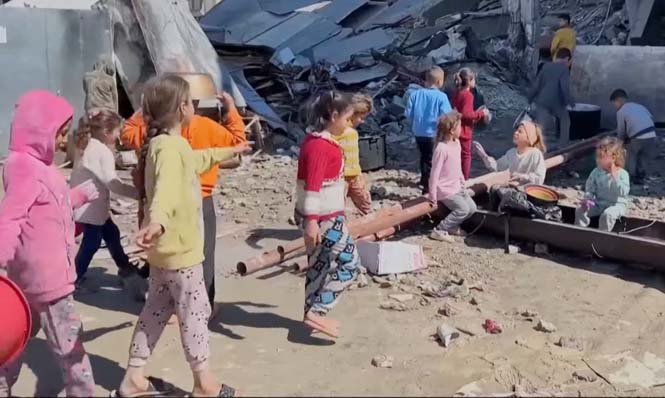
What’s Next: Escalation or Diplomacy?
With aid blocked and Hamas rejecting exile, the risk of a renewed Israeli ground offensive in Rafah grows. Satellite imagery analyzed by BBC shows Israeli troops massing near the Gaza border, while Hamas has reportedly reinforced tunnels beneath Rafah.
Yet behind the scenes, talks continue. Axios reports that CIA Director William Burns is shuttling between Doha and Cairo to revive negotiations. A June 7 UN Security Council resolution demanding an immediate ceasefire and aid access passed with 14 votes, but the U.S. abstained, calling the text “unbalanced.”
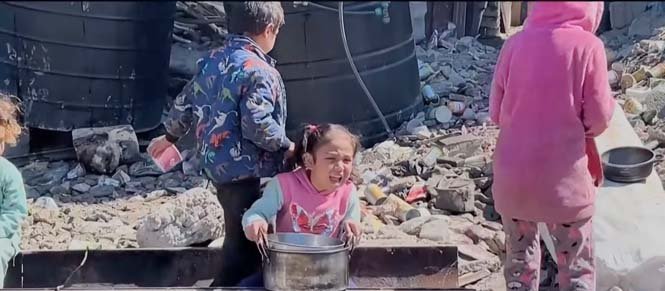
Conclusion
Israel’s dual strategy of aid suspension and a new peace framework has left Gaza teetering on the brink. While the plan offers a glimmer of diplomatic hope, its conditions appear tailored to fail, risking further escalation. For Gaza’s 2.3 million residents, survival now hinges on the world’s willingness to demand accountability—and humanity—from all sides. As the UN’s Martin Griffiths starkly warned: “History will judge us harshly if we look away.”
The coming weeks will test whether the war’s architects can balance hardline tactics with the desperate need for relief—or if Gaza’s civilians will pay the ultimate price. With regional alliances shifting and global pressure mounting, the path to peace remains as fraught as ever.
Related Video:
Source Section
- UN OCHA Report (June 2024): “Gaza Strip: Humanitarian Needs and Response Snapshot.”
- Reuters: “Israel Halts Gaza Aid, Citing Hamas Diversion Claims,” June 5, 2024.
- BBC: “Gaza Families Scavenge for Food as Aid Blocked,” June 6, 2024.
- Haaretz: “Exclusive: Israel’s Proposed Peace Plan for Gaza,” June 4, 2024.
- The Washington Post: “No Evidence of Hamas Aid Theft, UN Investigators Say,” June 3, 2024.
- Al Jazeera: “Arab States Condemn Israel’s Aid Suspension,” June 7, 2024.
- Axios: “Behind the Scenes: CIA Director’s Shuttle Diplomacy,” June 8, 2024.
- The Guardian: “Gaza’s Hospitals on the Brink,” June 5, 2024.
- Foreign Policy: “Why Israel’s Gaza Plan Is Doomed to Fail,” June 6, 2024.
- CNN: “Hostage Families Demand Action from Netanyahu,” June 7, 2024.
Explore More:
- Bibas Family Slams Netanyahu: Shiri, Ariel & Kfir Murders Exposed
- Hamas to Free 3 Hostages, Reviving Ceasefire Talks & Hope
- Hamas Halts Hostage Release, Accusing Israel of Ceasefire Breach
- Israel Confirms 8 Hostages Dead, Legal and Global Reactions
- Gaza Ceasefire Brings Hope Amid Hostage Crisis Turmoil
- Netanyahu and Biden Advance Gaza Ceasefire-for-Hostages Negotiations
- Trump’s Hostage Ultimatum Deepens Gaza’s Despair
- Trump Vows Ironclad Gaza Action This Saturday
- Trump’s Gaza Takeover Shocks: Netanyahu, Jordan’s Ceasefire Clash
- Netanyahu Delays Ceasefire Talks, Meets Trump Amid Escalating Tensions

